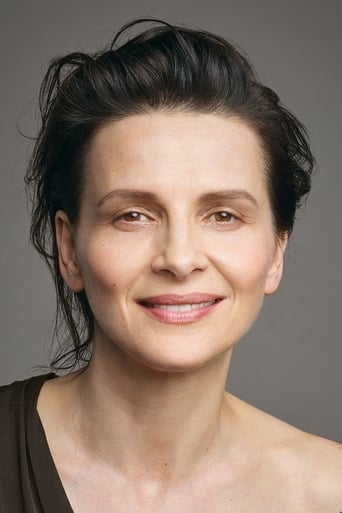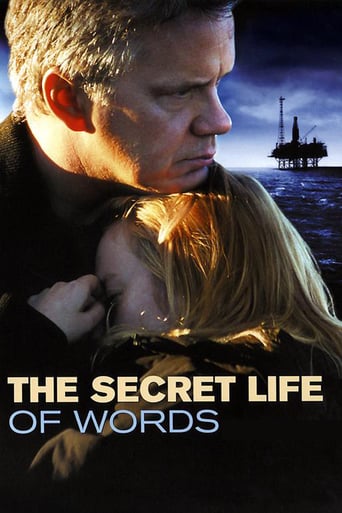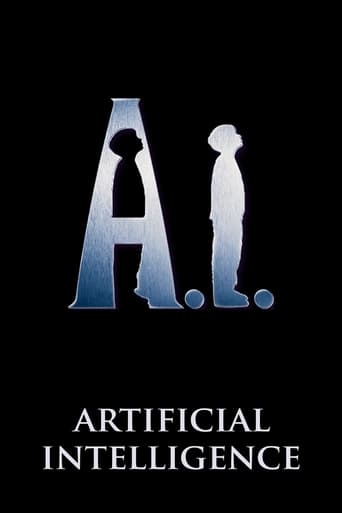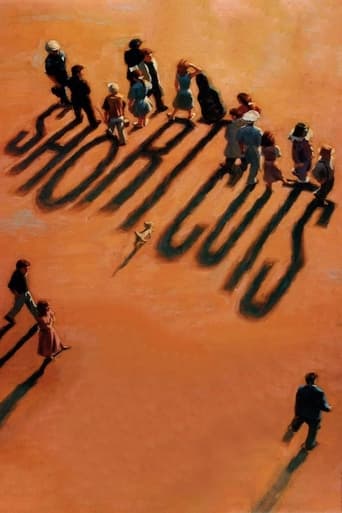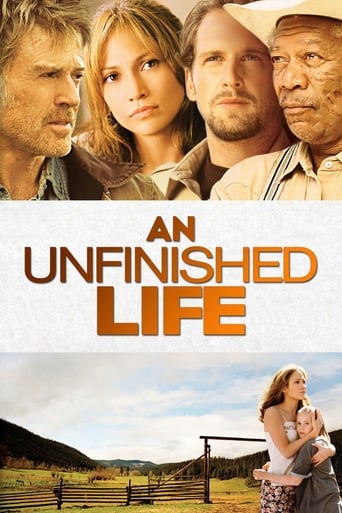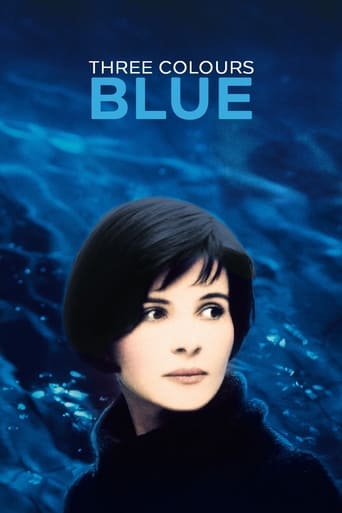
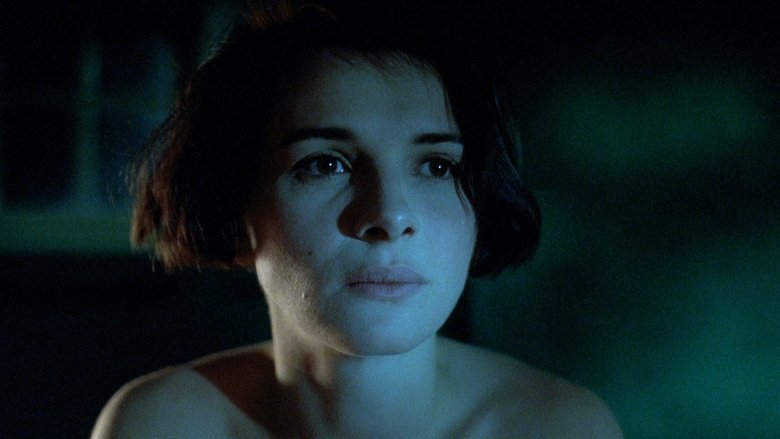
Three Colors: Blue (1993)
The wife of a famous composer survives a car accident that kills her husband and daughter. Now alone, she shakes off her old identity and explores her newfound freedom but finds that she is unbreakably bound to other humans, including her husband’s mistress, whose existence she never suspected.
Watch Trailer
Cast
Similar titles


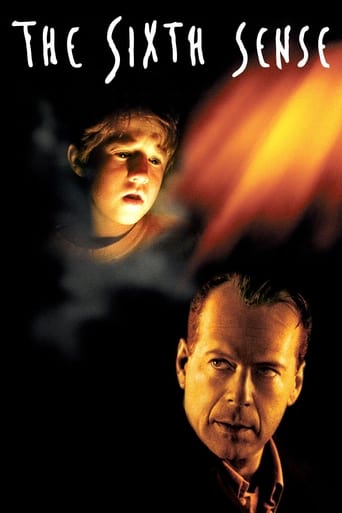

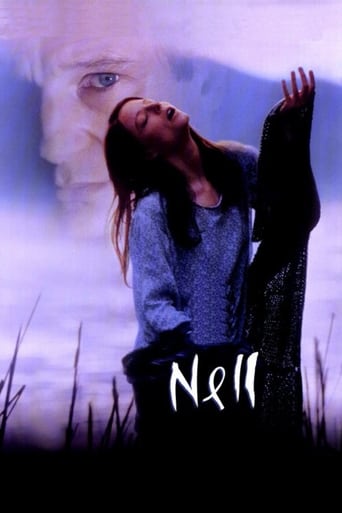
Reviews
Captivating movie !
It’s sentimental, ridiculously long and only occasionally funny
Great story, amazing characters, superb action, enthralling cinematography. Yes, this is something I am glad I spent money on.
It is neither dumb nor smart enough to be fun, and spends way too much time with its boring human characters.
WARNING: THIS REVIEW ALSO CONTAINS SPOILERS ABOUT THREE COLORS: RED AND THREE COLORS: WHITEBlue was a beautiful film. As I have seen all three colors by now, I have realized how kind this entire series is. All the characters are stuck somewhere in their lives, and at the end of Three Colors Red, they all stay alive after a ferry accident which shows that, in a way, they got unstuck and life still goes on.Blue is about a woman who loses her husband and daughter. I loved it how her pain is not cinematically over exaggerated as many directors would have done. It was shown in simple and non close-up ways, such as Julie swallowing medical pills but spitting them out, because she simply could not do that. I think that's why I say this movie was so kind - because it was extremely honest. I believed Julie's reaction to her husband's mistress, I believed her character, and all else about her.I liked the use of the color blue in here. It was Julie's color. Especially the jar hanging from her ceiling and the blue of the pool. Those colors represented her inner world for me: very calm, but at the same time radiant.I loved how Julie felt the music. There was a black screen, music - and then we were thrown back into the world in the same place and time where we were left. This is quite a unique cinematic technique, as fade to black usually means a change in scene.And in general, the music here was magnificent.One thing I noticed is that in all three films of colors, something life changing first happens to the characters, and later they make an unexpected decisions, that leads to the situation of being stuck to ease out a little bit...
A 6/10 only because of the color work, however the rest of it has visually aged - overlong pointless shots, overly insistent blaring "sad" music, blacking out of the screen - supposed to represent the emotional state, however when you have a unemotional dummy of the caliber of Binoche, who could win a contest for the female equivalent of "best show of emotions" since Steven Segal and Keanu Reeves, then not even blacking out of the screen can save you.Overal - an unreal imaginary story - seriously - giving away your house to your husband's mistress just because she has a child, in France - sorry, but french people are accountants and engineers - they would kill themselves before they give so much as a pence to a person who has, especially by the tacit French morality, no claim whatsoever on that money - set in unreal imaginary France ,going as far as to swim out of lanes in a public pool - we get it, Mr. Director, Julie is a "rebel" who arranges her own life, in the face of nonexistent social opposition to her rearranging the said life, who refuses convention, by being conventionally rebelious, but NO swimming pool in Paris will allow you to swim like that - you'll get ejected and banned for life.Also in immediately selling and throwing away all the deceased's possessions she, and thus the director, is following the convention of "healthy grieving"- that is the absence of grieving of the 90ies to the tee. So much for the rebeliousness!Second - I have an issue with Julie being sad because her husband died - that is no mention of her (presumably) child, while hers being a clearly dysfunctional family clearly on the road to divorce. In the end - it's just not believable and there is nobody (except "the whore", and as an aside - thanks social development that we, at least in most of the developed world, moved away from prying into people's private lives to the point of actually causing them harm in their public lives), who has any, ANY appeal in this story.If you like the pretence of style over Substance of Camus' "Stranger" you will like that movie, or if you like an unintentional comedic jumpscare horror with 2 creepface men and 1 resting assface woman as a protagonist - this movie is for you, for the rest - avoid and watch modern American drama.Sadly in this movie I feel I can see the beginning of the fall of the European cinema from making movies close to life, to being just another socialist Soviet Union cinema which exists solely because it's funded by the government and the "cultivated" class through lobbying.
That movie was my closest moment to feel the pain of a loss. It made me think of my possible moves if I lost one of my relatives and had to move on without them. At this point, Juliette Binoche was obviously perfect as she was really good playing her role. Also I have to point out that I spent plenty of time on the internet trying to find some good and valuable scenes from the movie because I really don't want to forget them and how I feel during these scenes! When it comes to Kieslowski and his different view for ordinary things, I can see the reason why I'm not a director or not even close to be a director. In the movie, Kieslowski has integrated art, music and death, any of which is extraordinary. However, it is also not easy to consider all of them together with a flawless relation!
This is the first film in Polish director Krzysztof Kieślowski's Trois couleurs trilogy based on the French Revolutionary ideals of liberty, equality, and fraternity. The high point is Sławomir Idziak's sumptuous cinematography and when all is said and done, 'Blue' is a fine film to look at. But in terms of story, it's also a slow-moving affair and if you don't have a lot of patience, you might find the narrative an exercise in unfortunate ennui.Juliette Binoche plays 'Julie' whose famous composer husband and young daughter are killed in a car accident at the beginning of the film. Totally shattered, Julie first attempts suicide but can't go through with it. Instead, she decides to withdraw from life by putting up her home for sale, place her Alzheimer's afflicted mother in a nursing home and renting an apartment in Paris without telling any of her friends and family. She also destroys her husband's unfinished musical score (commissioned to promote European unity), which she may have actually composed herself.The main question we're left with (as robot-like Julie makes her way through her self-imposed life in exile) is, when will she come out of it? Along the way, however, she's determined to prove that she can go through life with all her emotions deadened, as a sort of impotent protest against the cruel fate bestowed upon her. Hence, when Olivier, a former composer colleague who's in love with her, finally finds out where she's moved to, Julie has sex with him and then cruelly tells him never to see her again. And then there's all those scenes swimming in the pool—we hear the booming sound of the unfinished symphony impinging on Julie's consciousness. This obviously signifies her inability to repress her emotions completely.Kieślowski argues that in the mourning process there comes a point where demands for kindness in ordinary life must intrude on the mourner's determination to maintain their inflexible stance of anger and denial. Case in point: Julie answering exotic dancer's Lucille's call for help when her father shows up at the strip club. Or Julie deciding not to hold a grudge against Sandrine, her husband's mistress, by allowing her and the new baby, to live in her family's home. While Julie probably is still not overjoyed by Sandrine's actions, this is her way of 'moving on', and also acknowledging that she must help the baby, which belongs not only to Sandrine, but to her late husband as well.Julie finally breaks out of her shell by getting involved with Olivier. At the denouement, Olivier gives Julie the ultimatum about the unfinished score (a copy turns up preserved)—he'll complete it with all its 'roughness' or Julie will take over completely, but admit to current and past authorship. But Julie's decision is ambiguous in terms of who takes credit—what's important is that she's involved in collaborating and is no longer alarmingly self-absorbed. As the presumed completed symphony plays, we see shots of the various individuals who Julie touched, in spite of her self-defeating but thankful short-term exile. And the housekeeper who earlier cries for Julie because she's unable to mourn, can now rest assured that Julie is finally beginning to cry herself.Part of the 'Blue' problem is that there is no external conflict going on. The conflict exists solely in Julie's mind. The characters that impinge upon her are not developed in great detail—they exist as a catalyst for Julie's recovery. There's also the natural tendency to feel sympathy for a character that has experienced an unfathomable tragedy. Nonetheless, Julie's recovery is rather predictable and I'm not convinced that explorations of the mourning process in itself, should really be the subject of a full-length feature film. On the other hand, if you're a patient film goer, the film's visual palate, is worth the price of admission.
